Brakes Aren't Optional—They're Essential
Driving around Chicago is no joke—between potholes, traffic, and ice storms, your brakes are working overtime. But too many drivers wait until it's too late to deal with brake issues. The result? Accidents, costly repairs, and a whole lot of avoidable stress.
As a Chicago driver navigating busy streets and unpredictable weather, your vehicle's braking system is your most critical safety feature. Whether you're commuting on Lake Shore Drive, navigating the Kennedy Expressway, or dealing with stop-and-go traffic in Lakeview, ignoring brake problems can lead to dangerous situations. At SSS Auto Repair on Sheffield Avenue, we've seen countless cases where early brake issues turned into major repairs or accidents.
This guide breaks down the five major signs your brakes need immediate attention and explains why you should never ignore them. Here are the 5 most common signs that your brakes need immediate attention:
1. Squealing or Squeaking Noises: The First Red Flag
That high-pitched squeal when you tap the brakes? That's a built-in warning. Most brake pads come with a wear indicator that makes a squealing sound when the pads are getting too thin.
High-pitched squealing when you apply the brakes is often the first warning sign. This noise typically comes from worn brake pads with built-in wear indicators that make contact with the rotors. While this doesn't always mean an emergency, it's a clear signal that your brake pads are nearing the end of their life and should be inspected soon.
In Chicago's stop-and-go traffic, you'll hear this sound most clearly when making gentle stops at traffic lights or in parking lots. Don't ignore it—this is your car's way of telling you it's time for a brake inspection before the problem gets worse.
2. Grinding or Scraping Sounds: Danger Zone
Grinding isn't just annoying—it's a mechanical scream for help. At this point, your brake pads are likely gone, and now it's metal-on-metal.
If you hear a loud grinding or scraping noise when braking, this is a serious red flag. This sound indicates that your brake pads have worn down completely, and the metal backing plates are now grinding against the rotors. Continuing to drive with this condition can cause severe damage to your rotors and significantly increase repair costs.
When you reach this point, every stop is causing permanent damage to your rotors. What could have been a $200 brake pad replacement is now looking at $800+ in rotor replacement costs. Stop driving immediately and get to a brake shop.
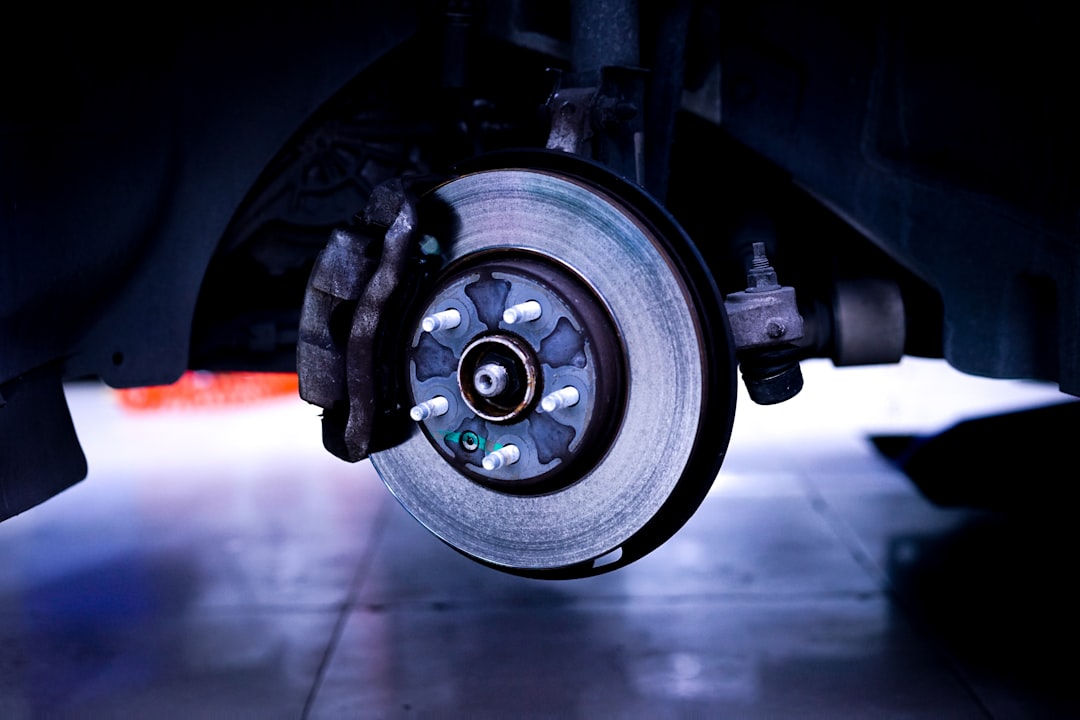
Detailed view of brake disc and suspension system components
3. Vibrations or Pulsing in the Brake Pedal
Feel a buzz in your foot every time you brake? That's likely warped rotors or uneven brake pad wear.
Feeling a vibration or pulsing sensation through the brake pedal, especially at higher speeds, often indicates warped rotors. This can happen due to overheating from heavy braking or from the rotors developing uneven wear patterns. Warped rotors can make your vehicle pull to one side and reduce braking efficiency.
This is especially common in Chicago where heavy traffic leads to frequent hard braking. The constant heat buildup from stop-and-go driving on the Dan Ryan or during rush hour on North Lake Shore Drive can warp rotors over time. You'll feel it most when braking from highway speeds.
4. Pulling to One Side When Braking
When your car veers left or right during braking, something's off. Could be a stuck caliper or uneven pad wear.
If your vehicle pulls to one side when you apply the brakes, it could indicate several issues: uneven brake pad wear, a stuck caliper, or problems with the brake lines. This condition is particularly dangerous in Chicago's busy traffic and should be addressed immediately to prevent accidents.
This is especially hazardous during Chicago winters when you're already dealing with slippery conditions. A car that pulls during braking can easily send you into another lane or off the road on icy streets.
5. Increased Stopping Distance: The Silent Killer
It could be anything from low brake fluid to serious pad or rotor degradation.
One of the most dangerous signs is when your vehicle takes longer than usual to stop. This could be caused by worn brake pads, low brake fluid, air in the brake lines, or issues with the brake booster. In emergency situations, this can be the difference between a safe stop and a collision.
In Chicago's dense traffic, every foot of stopping distance matters. When someone suddenly stops on the Eisenhower or a pedestrian steps into a crosswalk downtown, you need your brakes to respond immediately. Increased stopping distance is often gradual, so many drivers don't notice until it's too late.
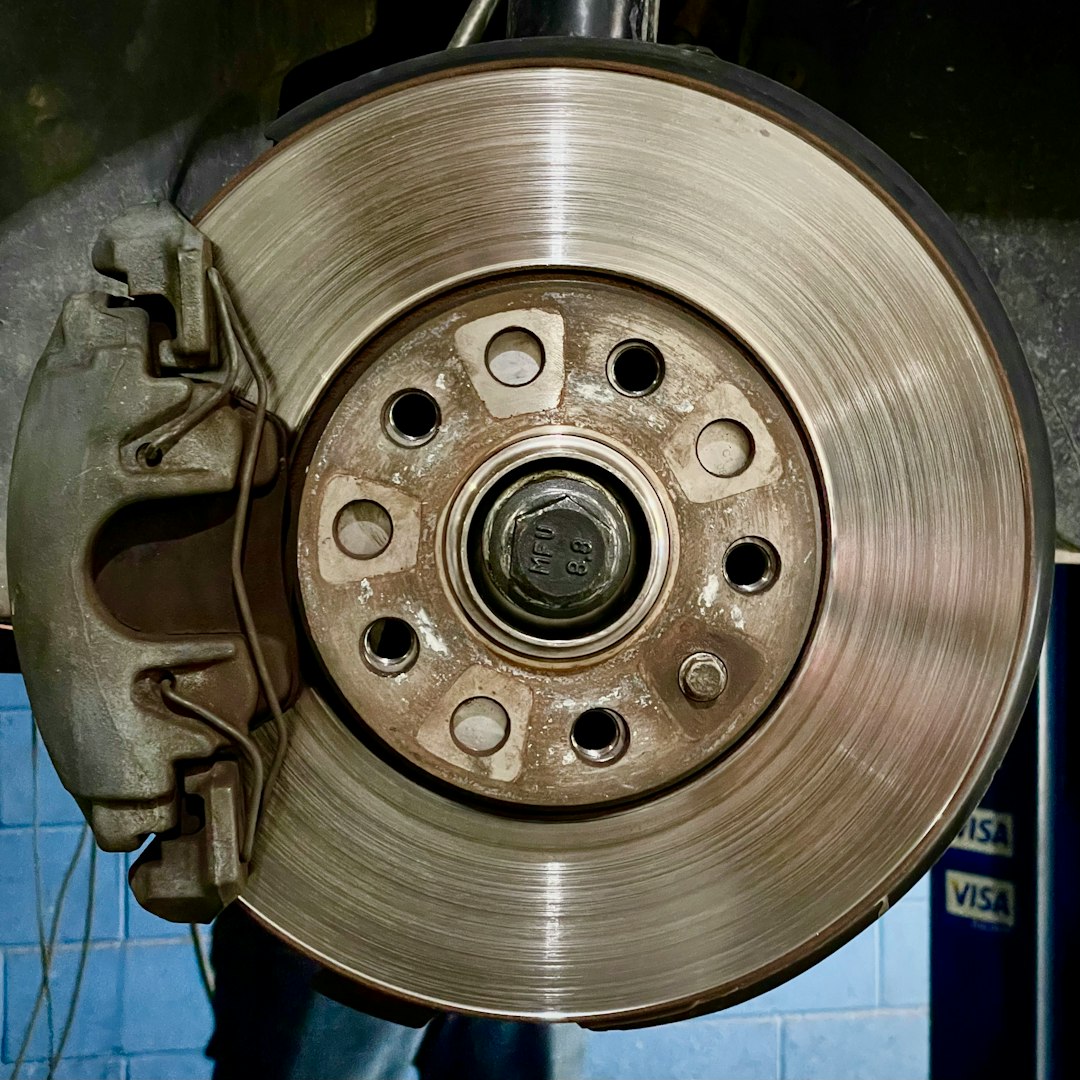
Brake caliper inspection and maintenance at professional auto repair facility
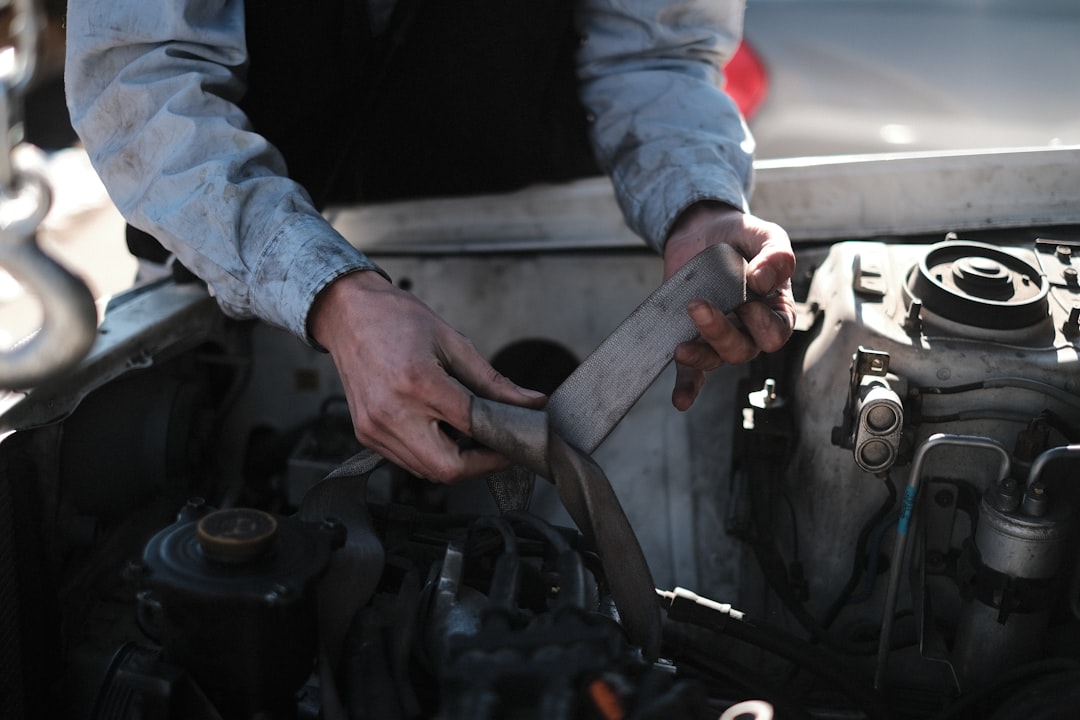
Expert automotive technician performing comprehensive brake system inspection
How Chicago Roads Eat Brakes Alive
Driving in Chicago is brutal on brakes. Stop-and-go traffic, potholes, and winter salt all add wear.
Chicago's combination of heavy traffic, construction zones, and harsh weather conditions makes reliable brakes essential. Whether you're commuting on the Kennedy Expressway or navigating Lake Shore Drive, your safety depends on a properly functioning braking system.
The stop-and-go traffic common on Chicago's major highways puts extra stress on brake components. Frequent braking generates heat that can warp rotors and wear pads faster than normal highway driving. Additionally, Chicago's winter conditions - including snow, ice, and road salt - create additional challenges for your braking system.
Chicago-Specific Brake Killers:
- Potholes and rough roads: Constant jarring affects brake component alignment
- Winter salt: Causes corrosion in brake lines and calipers
- Lake effect weather: Rapid temperature changes stress brake components
- Construction zones: Frequent sudden stops increase pad wear
- Dense urban traffic: More braking events per mile than suburban driving
Why Chicago Drivers Shouldn't Ignore Brake Issues
In a city where you might brake 200+ times during a single commute, your braking system works harder than anywhere else in the country. The combination of aggressive drivers, unpredictable weather, and deteriorating infrastructure means your brakes are constantly under stress.
The Real Cost of Delaying Brake Repairs
Replacing brake pads early costs $150–$300. Delay, and you're looking at $1,200+.
Many Chicago drivers make the mistake of putting off brake repairs due to cost concerns. However, this approach often leads to much more expensive problems:
Minor Issues Become Major Repairs
What starts as a $150 brake pad replacement can quickly escalate into a $800+ rotor replacement if ignored. When brake pads wear completely through, the metal backing plates grind against rotors, causing permanent damage that requires complete rotor replacement or resurfacing.
Real Cost Breakdown:
- Early brake pad replacement: $150-$300 per axle
- Delayed repair (pads + rotors): $400-$800 per axle
- Severe damage (calipers, lines, ABS): $1,200-$2,500+
- Emergency towing + repair: Add $150-$300 to any repair
Safety Risks Multiply
Compromised brakes don't just risk expensive repairs - they put you and your family at serious risk. In Chicago's heavy traffic and unpredictable weather conditions, every second of stopping distance matters. A brake failure during rush hour on I-94 or while navigating icy streets can have devastating consequences.
Consider this: the average Chicago driver spends 71 hours per year in traffic. That's 71 hours of constant braking, accelerating, and stopping. When your brakes fail in that environment, you're not just risking your own safety—you're endangering everyone around you.
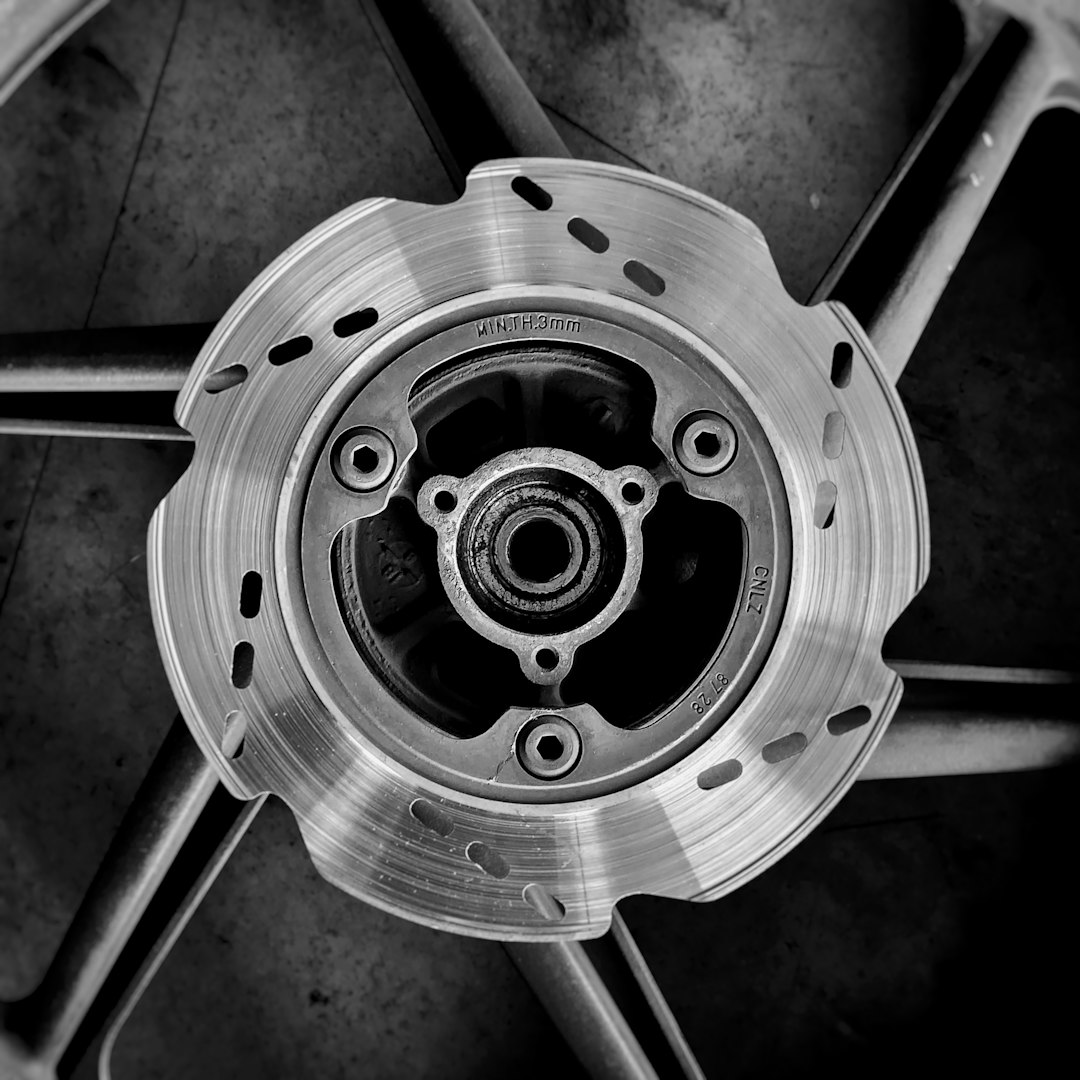
Complete brake system view showing disc, caliper, and wheel assembly
How Often Should You Get Your Brakes Checked?
Every 12,000 miles or once a year. More often for aggressive driving or heavy loads.
Given Chicago's demanding driving conditions, we recommend brake inspections every 12,000 miles or once per year, whichever comes first. However, certain driving habits and conditions may require more frequent checks:
- Heavy city driving: Frequent stops and starts in Chicago traffic
- Mountain or hill driving: Regular trips to areas with steep grades
- Towing: Hauling trailers or heavy loads increases brake wear
- Aggressive driving: Hard braking and high-speed driving
- Winter driving: Salt exposure and temperature extremes accelerate wear
- Construction zone commuting: Frequent sudden stops increase pad wear
Chicago-Specific Maintenance Schedule:
- Pre-winter inspection (October): Ensure brakes are ready for harsh conditions
- Post-winter check (April): Assess salt damage and component wear
- Summer highway season: Check for warped rotors from heat buildup
- Construction season (May-September): More frequent visual inspections
Know Your System: Disc, Drum, ABS—What You Need to Understand
Modern vehicles use a mix of braking systems. Know what your car has.
Understanding your vehicle's brake system helps you recognize potential issues and communicate effectively with your mechanic:
Disc Brakes vs. Drum Brakes
Most modern vehicles have disc brakes on the front wheels and either disc or drum brakes on the rear. Disc brakes provide better stopping power and heat dissipation, making them ideal for Chicago's demanding driving conditions. Drum brakes are typically found on the rear wheels of economy vehicles and require different maintenance considerations.
Disc Brake Advantages:
- Better heat dissipation for Chicago's stop-and-go traffic
- More consistent performance in wet conditions
- Easier to inspect and service
- Self-cleaning action prevents debris buildup
Drum Brake Characteristics:
- More affordable to manufacture and replace
- Better parking brake integration
- Protected from road debris and salt
- Require less frequent replacement
Anti-lock Braking Systems (ABS)
ABS prevents wheel lockup during emergency braking, which is particularly important on Chicago's wet and icy roads. If your ABS warning light comes on, have it diagnosed immediately - compromised ABS can significantly increase stopping distances in poor weather conditions.
ABS is especially crucial for Chicago drivers who regularly encounter:
- Sudden stops in heavy traffic
- Wet pavement from lake effect weather
- Icy conditions during winter months
- Emergency braking situations
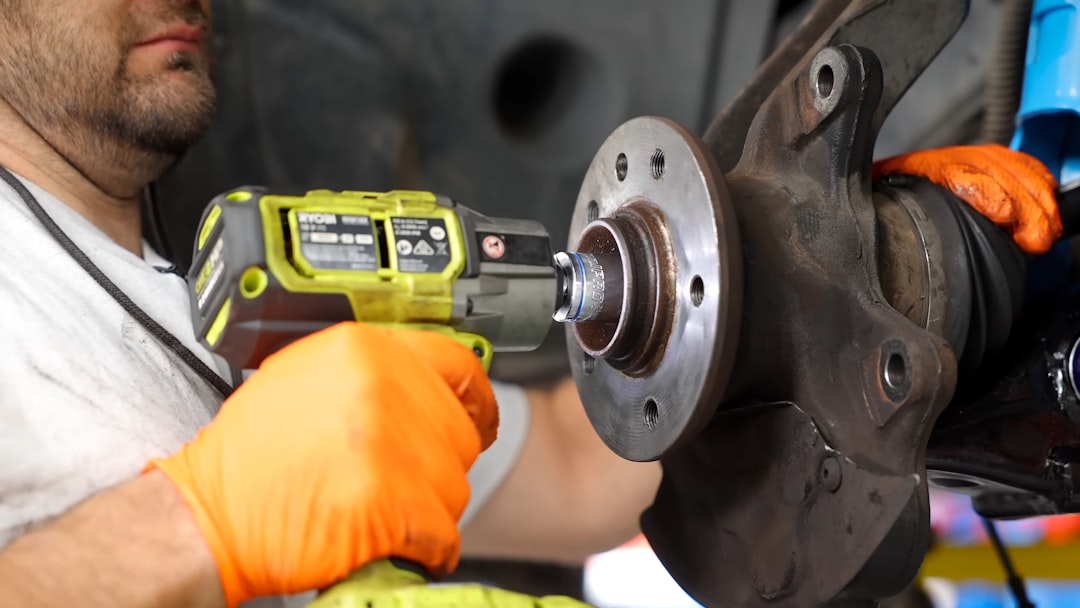
Professional brake maintenance and inspection at automotive service center
What Happens in a Professional Brake Inspection?
At SSS Auto Repair, we check pad thickness, rotor condition, brake fluid, lines, and ABS systems.
Our comprehensive brake inspection goes beyond a quick visual check. Here's what our ASE-certified technicians examine during every brake inspection:
Visual and Physical Inspection
- Brake pad thickness measurement: Using precision calipers to ensure adequate pad material (minimum 3mm)
- Rotor condition assessment: Checking for warping, scoring, or excessive wear using micrometers
- Caliper operation: Ensuring proper function, no sticking, and even pad wear patterns
- Brake hardware inspection: Springs, clips, and mounting hardware condition
Fluid and Hydraulic System Check
- Brake fluid level and quality: Testing for moisture contamination and proper levels
- Brake line inspection: Looking for leaks, corrosion, or damage from road salt
- Master cylinder condition: Checking for leaks and proper operation
- Brake booster function: Verifying power assist operation
Electronic System Diagnostics
- ABS system check: Verifying all sensors and components work properly
- Electronic brake force distribution: Testing EBD system operation
- Traction control integration: Ensuring proper communication between systems
- Diagnostic scan: Checking for stored error codes
Road Test Evaluation
- Stopping distance test: Measuring actual braking performance
- Pedal feel assessment: Checking for proper firmness and travel
- Noise and vibration evaluation: Identifying any abnormal sounds or sensations
- ABS activation test: Verifying system engages properly in controlled conditions
Don't wait for a breakdown or accident to address brake problems. Regular brake inspections are crucial for maintaining safety and preventing costly repairs.

Brake system components that need extra attention during Chicago winter conditions
Extend Your Brake Life: Pro Tips
Go easy on the pedal, don't tailgate, flush brake fluid every 2 years.
With Chicago's demanding driving conditions, every bit of brake life extension matters. Here are professional tips to maximize your brake system's lifespan:
Driving Techniques That Save Brakes
- Gradual braking: Start braking earlier and apply pressure gradually
- Engine braking: Downshift in manual transmissions to slow down
- Maintain following distance: 3-second rule prevents panic stops
- Anticipate traffic: Watch ahead for brake lights and slowdowns
- Coast to red lights: Let off the gas early when approaching stops
Maintenance Practices for Chicago Drivers
- Flush brake fluid every 24 months: Chicago's humidity accelerates fluid degradation
- Regular washing: Remove road salt to prevent corrosion
- Parking brake use: Prevents rear brake seizure in winter
- Quality parts: Invest in ceramic or semi-metallic pads for Chicago conditions
- Professional service: Don't attempt DIY brake work without proper tools
Chicago-Specific Brake Care
- Pre-winter prep: Inspect and service before salt season
- Post-winter cleaning: Thorough undercarriage wash in spring
- Traffic pattern awareness: Plan routes to avoid heavy stop-and-go
- Temperature management: Allow cooling time after aggressive driving
Bottom Line: If It Feels Off, It Probably Is
Brake issues don't fix themselves. Act early.
Your brakes are designed to give you warning signs before complete failure. In Chicago's challenging driving environment, these warnings are your safety net. Whether it's a subtle change in pedal feel or an obvious grinding noise, trust your instincts and get it checked immediately.
Remember: brake problems never get better on their own. They only get worse, more dangerous, and more expensive. The few minutes and dollars spent on early detection can save you thousands in repairs and, more importantly, protect you and your family from harm.

Brake fluid inspection and brake system maintenance procedures
Bonus: FAQs About Brake Repair
Q: Can I drive with squeaky brakes?
A: You can—but you shouldn't. Squeaky brakes indicate worn pads that need replacement soon. While not immediately dangerous, continuing to drive will lead to more expensive rotor damage.
Q: What's that grinding sound?
A: Your pads are gone. Stop now. Grinding means metal-on-metal contact, causing permanent rotor damage with every stop.
Q: How long do brake pads last in Chicago?
A: Typically 25,000-50,000 miles, but Chicago's stop-and-go traffic often reduces this to 20,000-30,000 miles. City driving is harder on brakes.
Q: Is it safe to drive with a spongy brake pedal?
A: No. A spongy pedal indicates air in the brake lines or low brake fluid—both serious safety issues requiring immediate attention.
Q: Can I replace just the front or rear brakes?
A: It depends. While you can replace one axle at a time, it's often more cost-effective to do both. Your mechanic can advise based on wear patterns.
Q: How much should brake repair cost in Chicago?
A: Pad replacement: $150-$300 per axle. Add rotors: $400-$800 per axle. Prices vary by vehicle type and part quality.
Q: Do I need to replace rotors every time?
A: Not always. Rotors can often be resurfaced if they're not too worn or warped. Your mechanic will measure thickness to determine if resurfacing is possible.
Q: What causes brake fluid to turn black?
A: Age, moisture contamination, and overheating. Black brake fluid should be flushed immediately as it can cause brake system failure.
Final Word: Brakes Are Life-Saving. Treat Them Like It.
Your car can't stop itself. That's on you.
In Chicago's challenging driving environment, your brakes work harder than almost anywhere else. Between the potholes, salt, traffic, and weather extremes, your brake system faces constant stress. The five warning signs we've covered aren't suggestions—they're urgent safety alerts that demand immediate action.
Don't gamble with your safety or your family's lives. When your brakes start talking to you, listen. A $200 brake pad replacement today beats a $2,000 repair tomorrow, and it definitely beats a trip to the hospital.
Schedule Your Brake Inspection Today
SSS Auto Repair | 2815 N Sheffield Ave, Chicago | (773) 472-4444
At SSS Auto Repair, our certified technicians use state-of-the-art equipment to diagnose and repair brake issues quickly and affordably. We serve Chicago's North Side and surrounding areas with honest, reliable service.
Schedule Brake InspectionCall us at (773) 472-4444 or visit our shop at 2815 N Sheffield Ave, Chicago, IL 60657-5003
